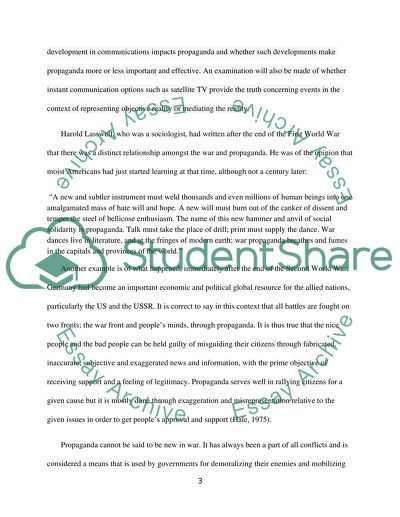Cite this document
(“Propaganda and Foreign Policy Essay Example | Topics and Well Written Essays - 2500 words”, n.d.)
Retrieved from https://studentshare.org/history/1394949-propaganda-and-foreign-policy
Retrieved from https://studentshare.org/history/1394949-propaganda-and-foreign-policy
(Propaganda and Foreign Policy Essay Example | Topics and Well Written Essays - 2500 Words)
https://studentshare.org/history/1394949-propaganda-and-foreign-policy.
https://studentshare.org/history/1394949-propaganda-and-foreign-policy.
“Propaganda and Foreign Policy Essay Example | Topics and Well Written Essays - 2500 Words”, n.d. https://studentshare.org/history/1394949-propaganda-and-foreign-policy.


